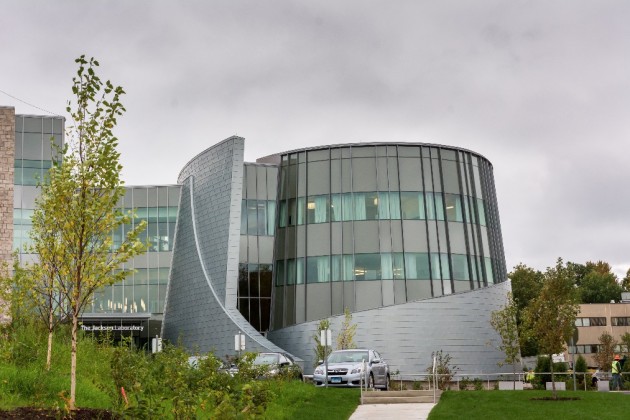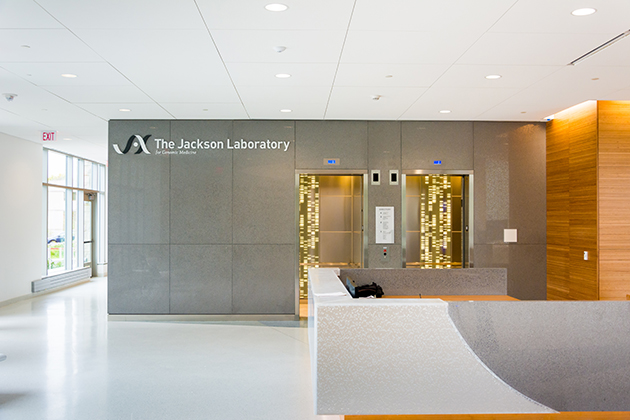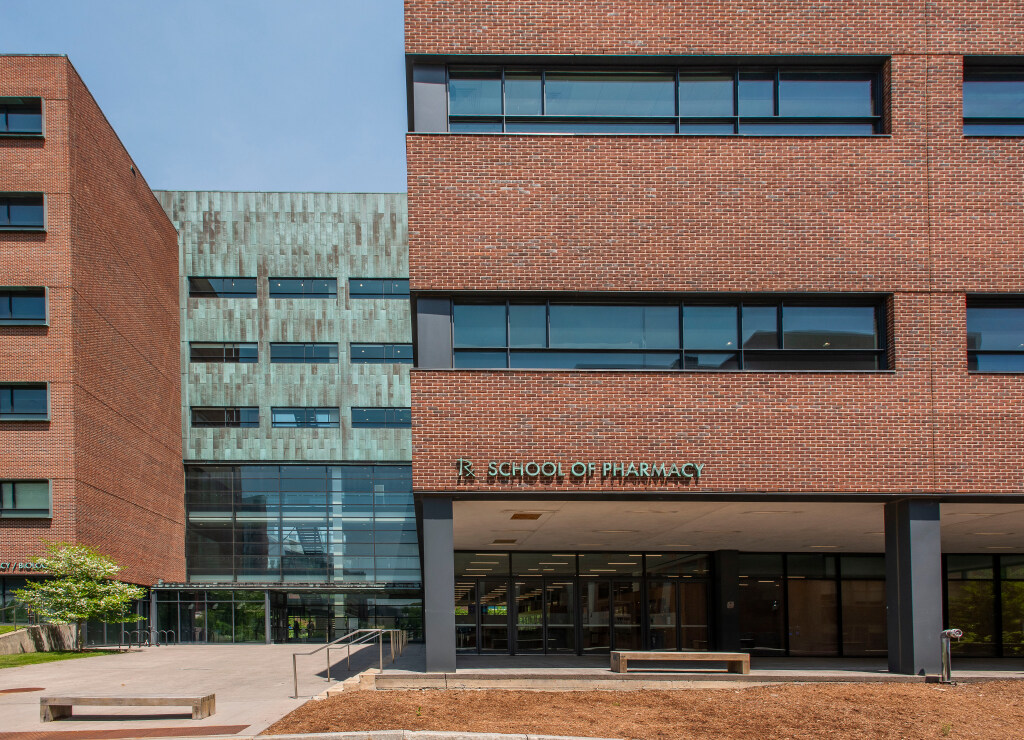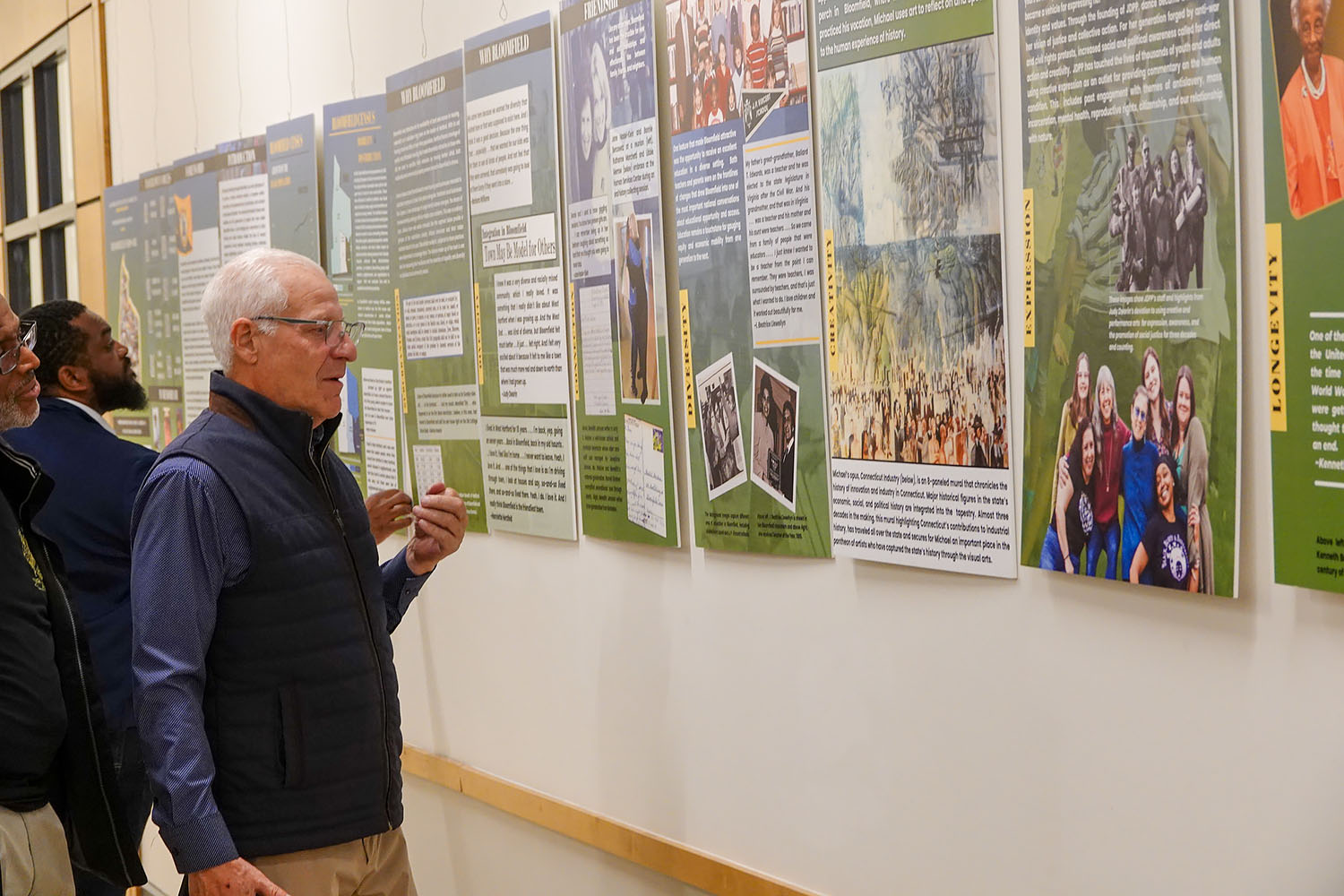
The promise of Bioscience Connecticut, and the prospect of expanding into medical applications of genomics, helped attract The Jackson Laboratory to Farmington and the UConn Health campus in 2011. Now just three years later, The Jackson Laboratory for Genomic Medicine is opening its new $135 million research center, and its scientists are already collaborating with a wide array of UConn researchers to help tackle some of the world’s most difficult diseases.
Today Gov. Dannel P. Malloy, UConn President Susan Herbst, national scientific leaders, and JAX senior officials officially commemorate the opening of the new Jackson facility. Speakers at the ceremony will include Dr. Eric Green, director of the National Human Genome Research Institute; Cynthia Morton, president of the American Society of Human Genetics and Harvard Medical School professor; JAX Genomic Medicine Scientific Director Charles Lee; JAX Executive Vice President and COO Charles Hewett; and JAX President and CEO Edison Liu.
Located on the lower campus of UConn Health, the newly constructed 183,500-square-foot building has four stories, 17 wet labs, 17 computational labs, and a 200-seat auditorium. It can accommodate 330 employees, and was designed with large, open suites to encourage the sharing of ideas among scientists, including those from UConn.

The Jackson Laboratory for Genomic Medicine is a nonprofit research center that identifies the precise genetic causes of diseases and spurs the development of individualized plans of treatment and prevention.
Liu, the President of JAX, says genomic medicine represents the next great frontier in the quest to improve human health. “With this new facility, we are poised to play a leading role in opening up that frontier and bringing the benefits of scientific discovery into the lives of patients.”

Scientists at JAX Genomic Medicine are building collaborations among doctors, researchers, and the biomedical industry to bring genomic research and technology into the clinical setting, and help build Connecticut’s bioscience industry. To date, nearly two dozen grant applications involving JAX and UConn researchers have been submitted for funding.
“We’re submitting grants in areas that we would have never submitted before JAX arrived,” says Marc Lalande, chair of the Department of Genetics and Developmental Biology at UConn Health. “We’re collaborating with them in areas where they are bringing genomics and we’re bringing clinical expertise, such as in geriatrics, where we have an excellent Center on Aging.”
Dr. George Kuchel, director of UConn Health’s Center on Aging, says, “Having JAX here has been a game-changer.” Kuchel is interested in working with JAX on an effective vaccine to fight pneumococcus – a type of bacteria that can cause several severe infections, including pneumonia. These infections can be serious and even life-threatening, especially in people with impaired immune systems, older adults, and young children.
Even though vaccines may help prevent some types of pneumonia, it is still a very common illness that affects millions every year. “Pneumonia vaccination has been shown to be effective in different populations, but unfortunately it doesn’t work as well as we would like it to work,” says Kuchel. “We need to come up with something better.”

In addition to the grants that are pending, several have already been awarded, even during this era of reduced federal financing.
One such collaborative National Institutes of Health (NIH) award was to Jeffrey Chuang, an associate professor at JAX Genomic Medicine, and UConn Health’s genetics and developmental biology professor Brent Graveley. Chuang, an expert in computational genomics, partnered with Graveley, a pioneer in the study of RNA molecules and the principal investigator of a $9.3 million ENCyclopedia Of DNA Elements (ENCODE) NIH award, to map protein binding sites in RNA, an important mechanism by which genes can be regulated.
“Having JAX here has completely altered the type of science that I do and the interactions that I have,” says Graveley. “JAX has brought a whole slew of experts in my area of genomics. We’ve initiated projects and been involved with several grant applications together, and none of that would have happened if JAX hadn’t moved to Connecticut.”
As JAX marks its grand opening today, the UConn Health campus continues to change. More Bioscience Connecticut projects are moving forward, including additions to the Cell and Genome Sciences building for bioscience start-ups, and expansion of the UConn Schools of Medicine and Dental Medicine. The next major event will be the opening of the UConn Health Outpatient Pavilion in the winter of 2015.



